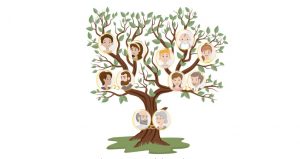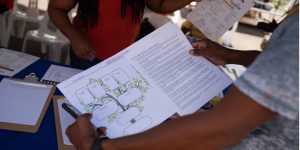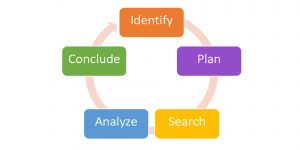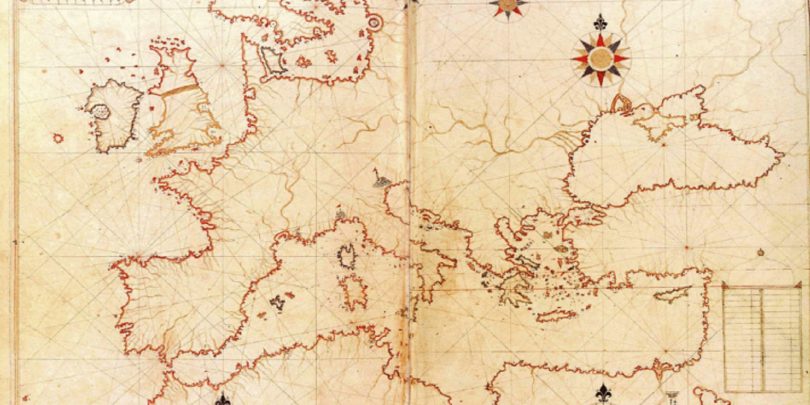Table of Contents
- 0.1 RELATED: Old World Comes Alive for Family History Researchers at Folksbiene Gala
- 0.2 Key Takeaways
- 1 What To Expect in European Genealogy
- 2 The Allure of The Old-World Genealogy
- 3 How To Navigate Old World European Ancestry Research
- 4 What Are the Main Ancestral European Origins?
- 5 Explore Europe’s Old World
European genealogy is vested in the mosaic of landscapes, traditions, and languages deeply steeped in history. Every region, from the fjords of Scandinavia and the olive groves of Italy to the rolling hills of Ireland, played a significant role in human civilization.
Therefore, by exploring European genealogy, we unravel historical insights that extend beyond our lineage. Nonetheless, our personal narratives can interweave the tapestry of European history, giving us a glimpse of the struggles, evolution, and triumphs of our forebears.
Unfortunately, personal odysseys that go beyond time and borders are marred with intricacies that often require professional intervention. You need to know the right tools and techniques to help you unlock ancestral roots and get into the heart of the Old World.
Luckily, this guide highlights all the crucial aspects you need to know if you’re planning to embark on an Old-World genealogy.
RELATED:
Old World Comes Alive for Family History Researchers at Folksbiene Gala
Key Takeaways
- Family Research focused on Europe can help you gather information about the ancestors’ lives and heritage.
- Unfortunately, embarking on such a journey that stretches back centuries comes with a set of challenges.
- The team of experts at RecordClick will help you conduct research back to the Old World, including Irish genealogy, German genealogy, and any other European heritage.
What To Expect in European Genealogy

Family Tree
Family research focused on Europe can help you piece together information about the ancestors’ lives and heritage. The investigative process, through narratives, documents, and records, can make the life we live today more sensible.
Besides, the extensive region likely to be covered in such research makes the findings resonate with people across the globe. So, whether you have ties to Europe or a heritage that spans continents, European genealogy back to the old world can provide shared history and rich stories that bind humanity together.
It’s worth noting that embarking on such a journey that stretches back centuries comes with a set of challenges. Unraveling the history threads is a challenging task, not to mention inaccessible records, border issues, and language barriers.
In addition, the long passage of time can obscure crucial details hence the need for professionalism, patience, and perseverance. Nonetheless, these challenges along the way make the process mysterious and exciting.
That is not to say that such genealogy is not rewarding. Each breakthrough you make during the research bridges the gap between generations as you discover stories, faces, and names that fade over time.
It is also thrilling to come across long-lost documents that help complete your family tree and uncover forgotten family lore. The sense of accomplishment that you develop after a few discoveries is unparalleled. Most importantly, the endeavor goes beyond names and dates, making the ancestors tangible figures who shape your identity.
The Allure of The Old-World Genealogy

Genealogy Research
The timeless landscapes, ancient castles, and cobblestone streets are like a whisper about our roots and the past. They also serve as a promise to connect us to the legacy of our ancestors if we commit to digging deeper. But what’s in it for you? Read on.
Shaping Ancestral Narratives in European Genealogy
At the heart of European genealogy back to the Old World lies the appeal of discovering family narratives and mysteries. The family stories should not just be tales of bygone eras but breathing records of the experiences and lives that shaped the modern world and your identity. Notably, most of these stories originated in the Old World, where ancestors faced challenges, carved their existence, and conquered.
Discovery of Europe’s Past Through Family Traditions
One crucial way to look back into the Old World is through family traditions that offer a sneak peek into the customs and cultures that defined our ancestors. From the annual celebrations held then to the cherished recipes we savor even today, the traditions reflect ancient Europe. You can pay homage to the ancestors’ lives through these traditions and honor your roots.
Personal Connection
Learning about the Old World heritage is a profoundly personal and emotional journey. When you visit the places where your ancestors once lived, walk down the ancient alleys, and breathe in the same landscapes, you forge a profound connection that transcends time. In this case, Old World stops being a history to you but a crucial link to your identity and life.
Preserving the Legacy
When you delve into European genealogy back to the Old World, you bring back to life your ancestors’ stories. Honoring the journeys, struggles, and triumphs helps the present and future generations understand that they are part of an ever-evolving narrative. This way, they take their stories and those of their ancestors as a legacy that extends beyond their lifetime.
RELATED:
Virginia Genealogy – Researching the Old Dominion

Research Process
Old World European Ancestry involves creating a schedule for all the necessary steps, such as gathering the right tools and resources. It’s worth it to allocate substantial time for tasks like record-searches and visits as they take boatloads of time.
Here is a step-by-step guide on how to navigate the intricate European family search.
- Start with What You Have: Before visiting archives and libraries, gather existing records such as stories, photos, and letters. These records offer a glimpse of your ancestors’ lives and help you decide where to start your genealogy.
- Formulate A Strategy: The readily available records and artifacts should form the basis of your future research plans. They help you identify the missing information and decide on the next steps. It’s worth digitizing and preserving them safely, as they may easily fall out of place or fade before you complete your research.
- Explore More Resources: The Old World is rich with church registers, immigration manifests, censuses, and historical records that can help unlock your lineage. Explore all the relevant resources and conduct your genealogy across generations and borders.
- Collaborate: Collaborating with professional genealogists and local historians is vital if you want an authentic genealogy outcome. These professionals can offer additional resources, guidance, and insights to break brick walls. Besides, they’re best suited to unwind migration patterns, naming conventions, and intricacies in historical contexts.
What Are the Main Ancestral European Origins?

Records and letters in a library
Countries and regions in Europe holding the key to ancestral origin include Italy and the British Isles. Each region has intricate patterns of historical records, migration routes, and naming conventions that help define ancestors’ lives.
Common ancestral European Origins include:
- Scandinavia: The Nordic countries, from the Viking legacy to modern-day Scandinavia, can offer insights into the lives of explorers, farmers, and seafarers.
- Ireland and the British Isles: This region is famous for its rich Celtic heritage and folklore. It also boasts of records that trace families in Great Britan and ancient Europe.
- Italy: As the land of culture, art, and romance, Italy has a wealth of records about ancient Europe preserved in municipal archives and churches.
- Germany: Germany has a well-documented history and offers a boatload of information about ancient Europe thanks to its robust record-keeping practices.
How To Conduct European Genealogy Across Regions
Your genealogy research in your designated region should leverage the archives, libraries, and online databases for details about your ancestor’s birth, marriage, and death. Similarly, you should learn the naming pattern in the selected region and check if the conventions have changed with time.
Most importantly, understanding the cultural and historical context may require the intervention of an expert. You need more than data to make progress in your Europe ancestry research, and a professional genealogist would provide valuable insights into the nuances of language, records, and local history.
RELATED:
Tracing Your Polish Ancestry – Geography May Hold the Answer
Explore Europe’s Old World
The team of experts at RecordClick will help you conduct research back to the Old World, including Irish genealogy, German genealogy, and any other European heritage.
Together we can explore, celebrate and honor ancestors in the Old World and enhance their legacies for the present and the future.
Grab the Free Consultation offer at RecordClick and share all your genealogy needs.







